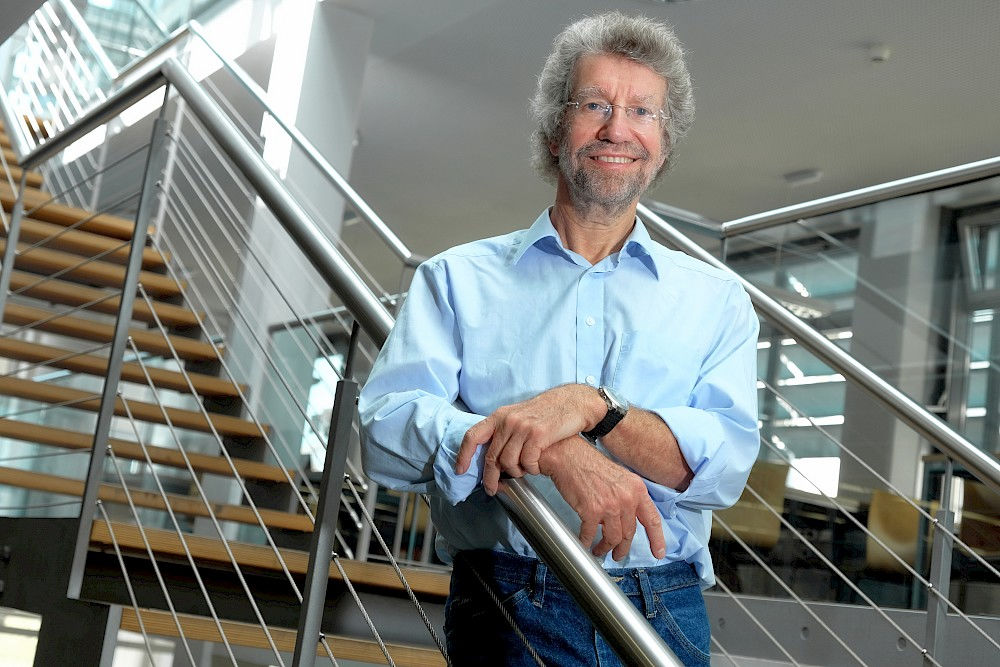Taking into account the perspectives of those affected

You are calling for an innovative approach to autism in Germany, why?
Georg Theunissen: Because we strongly focus on the deficits. A look to the USA can help. We also need to regard autism as an expression of a personal way of being and not as a disorder per se. This means that greater focus should be placed on the positive aspects of autistic people, including their special ways of thinking and perceiving things. Some of these aspects could be advantageous in a work environment, for example, attention to detail and enhanced perceptual functioning.
You are regarded as one of Germany’s leading researchers in autism education. When did you first become involved in the topic?
It was around 1980. At the time I was working as the education director of a large institution for disabled people. There I had developed a concept for “dehospitalising” and deinstitutionalization the people living there. It was significant because back then almost all people diagnosed with ‘early childhood autism’ were placed in psychiatric institutions. They were also regarded as being mentally disabled, which is now viewed differently by leading autism researchers. Even then, parents were against placing their children in psychiatric institutions. However, there were still no viable residential alternatives and support for autistic people, no self-advocacy groups, and only a few autism centers e. g. for early supports.
Had things moved further along in the USA by the end of the 1980s?
Yes, the empowerment movement originated there, which assertively brought to the fore the aspirations of disabled people for self-advocacy. As an alternative to more aversive practices, there was the concept of positive behavioural support, which was very similar to my approach to dealing with autism. It is about viewing it in a more resource- and strength-oriented way.
Your chair of special education for people with intellectual disabilities was expanded in 2012 to include pedagogy for autism. How did this happen?
The time was right. I also realised something that amazed me: According to estimates, autistic people make up about one per cent of the total population. This is roughly equal to the number of people who are considered intellectual disabled. Alongside this finding was the fact that there were 16 chairs of special education for people with intellectual disabilities in Germany, but none of pedagogy for autism. I wanted to rectify this imbalance.
What has been achieved since then?
Through my frequent research visits to the USA I realised that the situation in Germany could be improved. Many scientific theories and ideas about autism were unknown in Germany or were not taken into account. Therefore, I applied some of the most important approaches and, together with my colleagues, developed an autism spectrum lexicon with the involvement of internationally renowned researchers and people affected. This was basically a development phase. This phase was important because without knowledge of the state of research, expert discussions and the views of those affected, you are unable to grasp, diagnose and understand autism and its various manifestations. We had also begun to invite people from the autism spectrum to our conferences. There they were able to present their positions and feel more acknowledged. Local self-advocacy organisations benefited above all from this.
Nevertheless, the scientific approach to the topic in Germany today still differs to the approach applied in the USA. Why?
We still have two currents of thought. Namely, one that I feel I adhere to which takes the position of those affected more strongly into account. It is scientifically based and supported by neuroscientific findings. On the other hand, there is a rather conservative, clinical position, which, at least partly, collides with it. I think it will take time for that to change.
Why do people in the USA look at autism in a more socially progressive way?
For one thing, the idea of self-determination plays a much more pivotal role in the USA. This makes self-help and self-advocacy networks more visible and leads to more financial support. There are also some famous autistic people who are highly regarded. For example, Prof Temple Grandin, the world's leading expert in the design of livestock facilities, whose life has even been made into a film.
What do the students at MLU take away from your research?
I think it is important that everyone who studies special education when getting their teaching certificate in special education for people with intellectual disabilities or as part of their educational sciences master’s degree should visit lectures on special education for people on the autism spectrum. We provide a functional, comprehensible view of autism that distinguishes between autistic characteristics, autistic behaviour and other challenging behaviours. Students need to understand why autistic people behave in a challenging way in certain situations. Often this is because they are highly sensitive, for example with regard to hearing, which makes them unable to endure specific situations. I have intensively studied these situations and problems. A functional assessment is important if you want to effectively support autistic people. And that's what it's all about. When students acquire an understanding and reflect on how to deal with the topic, it is a good basis for a shift in society.
Prof. Dr. Georg Theunissen
Institute for Rehabilitation Pedagogy
phone: +49 345 55-23755
e-mail: georg.theunissen@paedagogik.uni-halle.de
